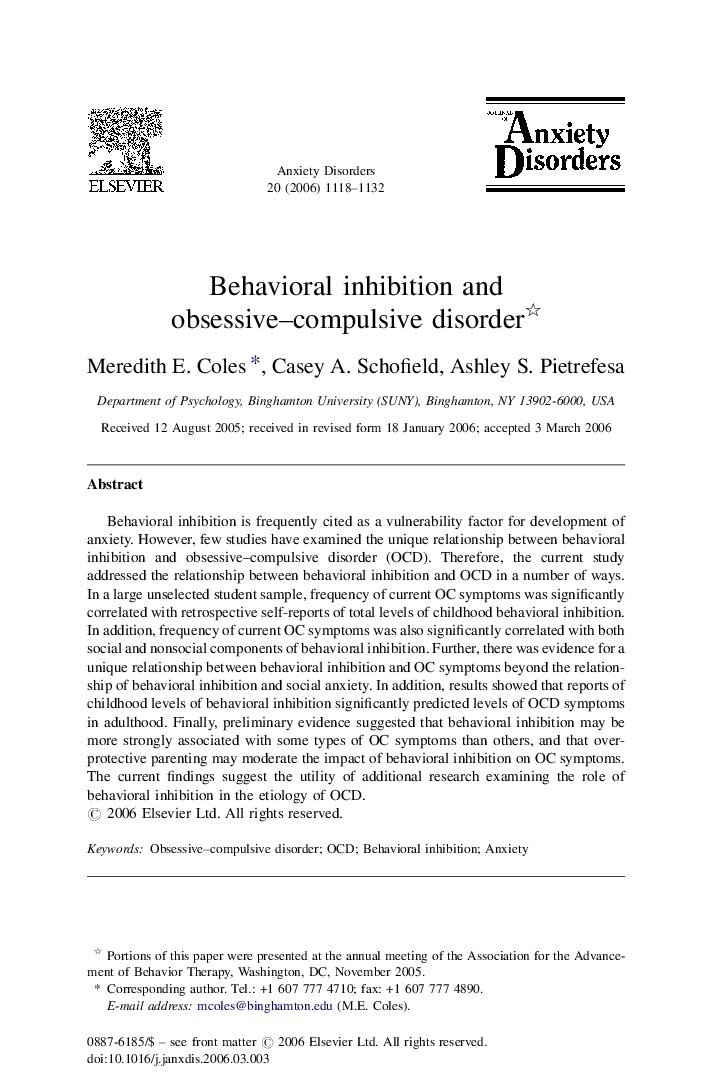| Article ID | Journal | Published Year | Pages | File Type |
|---|---|---|---|---|
| 909993 | Journal of Anxiety Disorders | 2006 | 15 Pages |
Behavioral inhibition is frequently cited as a vulnerability factor for development of anxiety. However, few studies have examined the unique relationship between behavioral inhibition and obsessive–compulsive disorder (OCD). Therefore, the current study addressed the relationship between behavioral inhibition and OCD in a number of ways. In a large unselected student sample, frequency of current OC symptoms was significantly correlated with retrospective self-reports of total levels of childhood behavioral inhibition. In addition, frequency of current OC symptoms was also significantly correlated with both social and nonsocial components of behavioral inhibition. Further, there was evidence for a unique relationship between behavioral inhibition and OC symptoms beyond the relationship of behavioral inhibition and social anxiety. In addition, results showed that reports of childhood levels of behavioral inhibition significantly predicted levels of OCD symptoms in adulthood. Finally, preliminary evidence suggested that behavioral inhibition may be more strongly associated with some types of OC symptoms than others, and that overprotective parenting may moderate the impact of behavioral inhibition on OC symptoms. The current findings suggest the utility of additional research examining the role of behavioral inhibition in the etiology of OCD.
